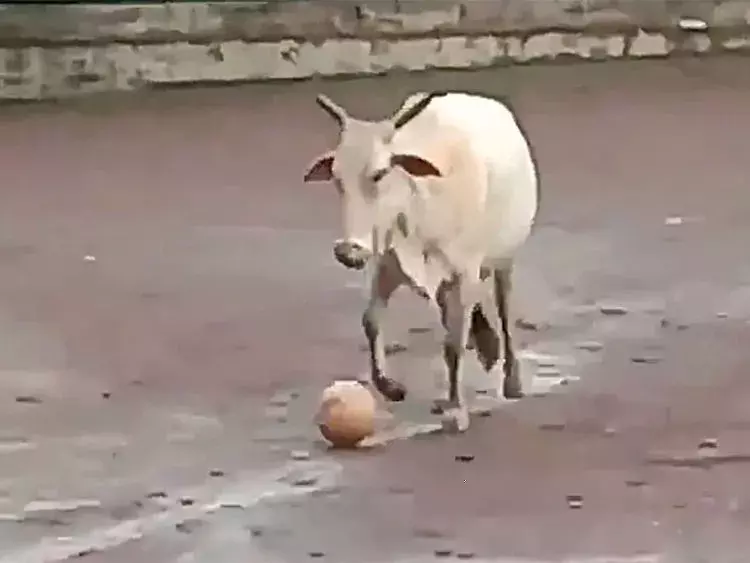The Beautiful Game
Whatever the sport, it should be played with fairness, and discipline

Pass the bottle please. This is not a plea in a mythical heaven of dipsomaniacs where the elixir flows freely. The said bottle, intriguingly enough, pertains to sports, marathons to be exact. But about that later.
The global eyeballs have been fixated on football, the world's most popular ball game in sheer numbers and spectators. Cricket comes right on its heels as Number 2 in popularity. But in terms of a more egalitarian pedigree, despite gully cricket in India, football is streets ahead. No fancy sports kit, just a ball to go, toe-to-toe!
Soccer has been alive and kicking at FIFA 22,Qatar, a first as a venue in the Global South. The murmurs of corruption, migrant exploitation and human rights issues cast a shadow on FIFA 22 initially. But 'The Beautiful Game' played at Doha has spouted a lava of adrenaline the world over once the matches got going.
The narrative of under dogs triumphing, most unexpectedly, over the Titans has the flavour of a David beating Goliath fable. And Saudi Arabia beating the iconic Argentina set the ball rolling with more shocking upsets, with giants of football, losing to minions or teams locking horns in a nail biting finish.
With Morocco's maiden appearance in the World Cup semi-finals, the entire Arab world has come alive. Shakira's song 'Waka, Waka' (This Time for Africa) was within a whisker of coming true!
It's been a bettor's nightmare. Result? Fan frenzy, more popcorn and high decibel noise at the stadiums. No passing the bottle or the beer cans there for sure unless one wants to cool one's heels in the clinker, with fines to boot.
Mercifully for human ears, the Vuvuzela, a trumpet shaped instrument popular with the South African team, was banned at the FIFA 2010 and other World Cups. Its decibel level of 127 was louder than a chainsaw, or a lawn mower. Cacofonix from the Asterix comics series would have revelled in this din.
'O jogo bonito', Portuguese for 'the beautiful game', was used for association football but it became a hot phrase after 'King' Pele, the legendary Brazilian footballer, gave it currency. H.E. Bates, an English author and football fanatic, utterly seduced by the sleights of feet and the mindplay in soccer, called the game "Brains in the Feet" in a newspaper piece.
Nike, the sportswear company, always on the uptick, used football as a theme in a 1996 commercial. It used the Portuguese phrase 'joga bonito', meaning 'play beautifully' instead of 'jogo bonito', in a campaign before the 2006 FIFA World Cup. This was a super ad strategy to promote sportsmanship in its truest sense.
This is where the role of the spectators kicks in. Spectators casting racial slurs or asphyxiating the spirit of the game because of geopolitics is a no no in sports .
Whatever the game, it should be played with fairness, discipline, team spirit and respect for the opponents. The recent fracas over cricket and football in many parts of the world in stadia shows utter lack of sportsmanship.
And now the denouement of passing the bottle! This features the marathoner, Eliud Kipchoge, 'the Flying Kenyan'. He bested his world record set in Berlin in 2018 by shaving off 30 seconds at the 2022 Berlin Marathon. Kipchoge expressed his gratitude to the volunteer German bottle-passer, Claus Henning , for passing the hydrating drink to him 13 times in a 42 kilometre track while riding on a cycle alongside the sprinters. He made a pit stop to pass it on without botching the hand over. Remarkable focus, grit, team spirit and humility that all sports should embody.
Claus, an engineer by profession, is popularly known as Bottle Claus, a pretty close approximation of the real Santa Claus except that this Claus doesn't have a reindeer to ride on!



